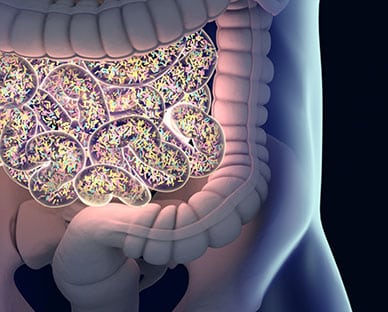Many people associate melatonin with sleep — with good reason. Helping to regulate and maintain the circadian rhythm appears to be the most important and best-known role of this pineal gland hormone. However, melatonin also plays a variety of other important roles in the human body. According to recent studies on melatonin and fertility, it may play a very important role in helping couples to conceive.
Infertility: A Growing Modern Problem
 For reasons that doctors and scientists do not fully understand, an increasing number of people are struggling with infertility. Only one in six couples trying to conceive will be able to do so in a reasonable amount of time, generally defined as around a year.
For reasons that doctors and scientists do not fully understand, an increasing number of people are struggling with infertility. Only one in six couples trying to conceive will be able to do so in a reasonable amount of time, generally defined as around a year.
Infertility has classically been seen as a female problem, but men are contributing increasingly to low pregnancy rates. Causes that can be attributed to the male are now behind around 30 percent of infertility cases. For reasons that are not completely understood, sperm counts around the world have dropped dramatically and are continuing to fall. An increasing number of couples are seeking IVF and other fertility treatments, making reproductive technology one of the fastest growing fields of medicine. Despite this medical assistance, birth rates in the developed world are below replacement rates and continuing to fall.
What is causing this decline in fertility? There are several hypotheses, including estrogens in the water supply, increased pollution of water and air, radiation from smart devices and a general inclination to wait until later in life to conceive. Regardless of the cause, several studies suggest that melatonin may be part of the answer.
Could Melatonin Affect Egg Quality?
The rise in in-vitro fertilization has allowed scientists to study in depth what factors make an egg healthier and more likely to successfully become an embryo. The life cycle of an egg is complex and extremely important to fertilization, making it a popular avenue of study in the fertility world. Eggs, or oocytes, spend most of a woman’s life dormant in her ovary. When stimulated, a single egg begins to mature and resumes cell division. It matures in a follicle until it is released. From here, it travels down the fallopian tube to the uterus, where it is hopefully fertilized. If a couple is undergoing IVF, the egg is instead harvested.
Melatonin fluids in follicular fluid have been found to predict the health of the future egg. Melatonin also appears to protect eggs from oxidative stress during the collection and fertilization process, which in turn improves the chances of successful fertilization and implantation.
Simply giving melatonin to women trying to conceive has been found to improve egg quality as well as increase the chances of a successful pregnancy. Although these are all small studies, they definitely suggest that melatonin is crucial to conceiving and carrying a pregnancy, especially for women struggling with infertility.
Melatonin and Fertility in Males
 Melatonin is important to the fertility of women, but it also appears to play a role in the fertility of men. High melatonin levels have been linked to sperm quality in both living men and in storage for insemination. This appears to be partly due to melatonin’s role as an antioxidant, preventing damage to DNA in semen.
Melatonin is important to the fertility of women, but it also appears to play a role in the fertility of men. High melatonin levels have been linked to sperm quality in both living men and in storage for insemination. This appears to be partly due to melatonin’s role as an antioxidant, preventing damage to DNA in semen.
However, melatonin may play another role as well, one that is increasingly important in the modern world: protecting sperm from damage due to pollutants. For men who live in areas where water and air quality are affecting fertility rates, this could be an immense advantage.
Although melatonin alone cannot cure male infertility (that we know of, at least), it appears to have an important role in male fertility. Men who are on the borderline between infertility and conception may especially benefit from taking a nightly supplement or from taking care to keep their natural production of melatonin high.
Links Between Circadian Rhythm and Fertility
Many of these studies have been performed in-vitro, on eggs that are fertilized in dishes for use in IVF and other reproductive technologies. However, the findings also likely apply to conceptions that occur the natural way. Because melatonin is a natural antioxidant and free radical scavenger, it can prevent cells from getting damaged from respiration and other activities. This is likely part of the reason that both eggs and sperm fare better when exposed to melatonin.
However, there may be other causes of the link between a healthy circadian rhythm and fertility. Melatonin appears to contribute to healthy hormonal cycles in women, which are essential for conception and pregnancy. In addition, people who have irregular melatonin may also have other health risk factors such as obesity or type 2 diabetes, as both of these have been linked to low melatonin levels.
There definitely appears to be a link between melatonin and fertility rates; one that may become increasingly important as infertility rates increase around the world. Although the causality remains in question, people nonetheless may find they are more fertile when they lead a healthy lifestyle, including getting plenty of sleep and keeping their circadian rhythm well-regulated.
 These are not the only studies published this year on fruit flies and gut bacteria. Another study, published in
These are not the only studies published this year on fruit flies and gut bacteria. Another study, published in  According to several recent studies, taking resveratrol may make it easier for couples to conceive a child. Women are born with all of their eggs present in ovaries and waiting for more fertile times. As women age, their eggs also age and decrease in general quality. Even if older couples try in-vitro fertilization and other reproductive technologies, low-quality eggs can be a major barrier to conceiving and bearing a healthy child. However, there is hope. Mice that were given resveratrol throughout their fertile years had
According to several recent studies, taking resveratrol may make it easier for couples to conceive a child. Women are born with all of their eggs present in ovaries and waiting for more fertile times. As women age, their eggs also age and decrease in general quality. Even if older couples try in-vitro fertilization and other reproductive technologies, low-quality eggs can be a major barrier to conceiving and bearing a healthy child. However, there is hope. Mice that were given resveratrol throughout their fertile years had  Red wine has long been touted as one way to get resveratrol. However, there is some controversy as to whether the amounts of resveratrol in red wine are sufficient; also, this may not be a solution for women who are trying to conceive and are thus avoiding alcohol. If you are interested in trying this supplement because of the link between resveratrol and fertility, there are other ways to get your daily allowance. Berries such as blueberries and mulberries are both good sources of this compound. In addition, it is present in large amounts in the skins of red grapes, so eating this fruit may help.
Red wine has long been touted as one way to get resveratrol. However, there is some controversy as to whether the amounts of resveratrol in red wine are sufficient; also, this may not be a solution for women who are trying to conceive and are thus avoiding alcohol. If you are interested in trying this supplement because of the link between resveratrol and fertility, there are other ways to get your daily allowance. Berries such as blueberries and mulberries are both good sources of this compound. In addition, it is present in large amounts in the skins of red grapes, so eating this fruit may help. Having low selenium levels not only increases your risk of liver cancer, but it also increases your risk of death by any type of cancer. Scientists have also observed that selenium-rich geographical regions have lower cancer rates on average. Not very much research has been done yet on specific cancers as they relate to selenium intake. One study done in the Netherlands found that
Having low selenium levels not only increases your risk of liver cancer, but it also increases your risk of death by any type of cancer. Scientists have also observed that selenium-rich geographical regions have lower cancer rates on average. Not very much research has been done yet on specific cancers as they relate to selenium intake. One study done in the Netherlands found that